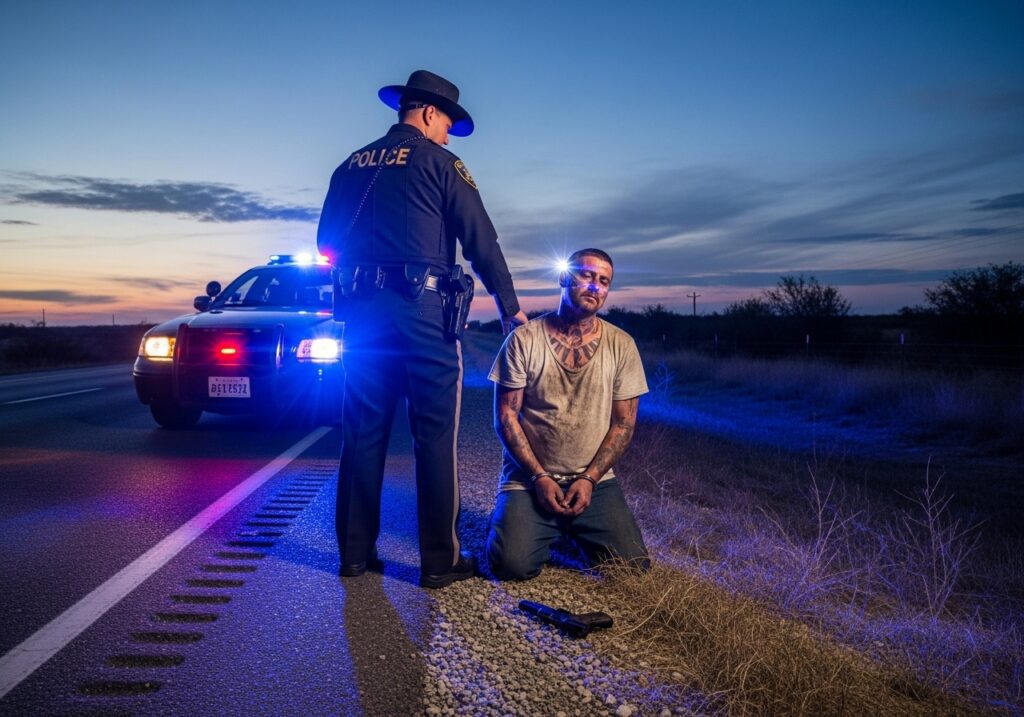The recent arrest of Savin Seng, a Cambodian national and known member of the Asian Boyz gang, raises serious concerns about immigration enforcement and national security in the United States. Seng, an illegal immigrant with a violent criminal history, is now accused of killing two people in two separate states—first in California, then in Texas—while evading law enforcement for years.
Seng entered the United States legally as a child in 1984 but was ordered deported in 2016 after amassing a record of violent crimes, including burglary, aggravated assault with a deadly weapon, illegal firearm possession, and domestic violence. Immigration and Customs Enforcement (ICE) had him in custody, but they were unable to deport him because the Cambodian government refused to issue travel documents. That refusal left ICE with no legal authority to hold him indefinitely, so Seng was released back into the public.
The consequences of that release are now tragically clear. In 2022, Seng allegedly shot and killed a 20-year-old man in North Hills, California. Reports say the killing was unprovoked, possibly sparked by a minor argument over a parking space. Rather than face justice, Seng fled across state lines. Then, in 2025, he allegedly murdered a 47-year-old woman in Victoria, Texas. Local law enforcement finally captured him walking along a highway with a loaded gun. When questioned, Seng admitted to being a member of the Asian Boyz gang and gave conflicting answers about how he got the weapon.
This case highlights a dangerous loophole in America’s immigration system. When foreign governments refuse to take back their criminal nationals, ICE has no legal option but to release them, even when they pose a clear threat to public safety. It’s a situation that leaves American communities exposed to violent offenders who should have been deported years ago.
To address this challenge, the Trump administration has been negotiating with third countries willing to accept deportees. One example is the small African nation of Eswatini, which has already received several deportation flights from the United States. These third-country agreements are a practical workaround when the criminal’s home country refuses cooperation. But the process is slow and politically sensitive, making it hard to apply on a large scale.
The risk is not just theoretical. Seng is not some one-off case. He is a symptom of a broader problem. Transnational gangs like the Asian Boyz, which started in Southern California in the 1980s, continue to operate across state lines and national borders. Many of their members are immigrants—some legal, some illegal—who exploit weaknesses in the U.S. immigration system. In Seng’s case, he used that weakness to avoid deportation and continue a life of violence.
This is a national security issue. The United States cannot allow violent foreign criminals to remain in the country simply because their governments refuse to cooperate. If deportation is not possible, then long-term detention must be on the table. Public safety demands it. At the very least, local law enforcement and federal authorities must have better tools to track and detain high-risk individuals.
President Trump’s focus on immigration enforcement is more than a political stance—it’s a matter of life and death for Americans. The story of Savin Seng is proof. It calls for stronger international agreements, tougher detention rules, and a renewed commitment to protecting American citizens from those who enter this country and break its laws with impunity.
While law enforcement in Texas deserves credit for quickly capturing Seng before he could kill again, the larger problem remains. America must close the gaps in its immigration system before more lives are lost. National security begins at the border, but it doesn’t end there. It includes making sure that those who come here, especially those with violent histories, are not allowed to walk free when they should be gone for good.

